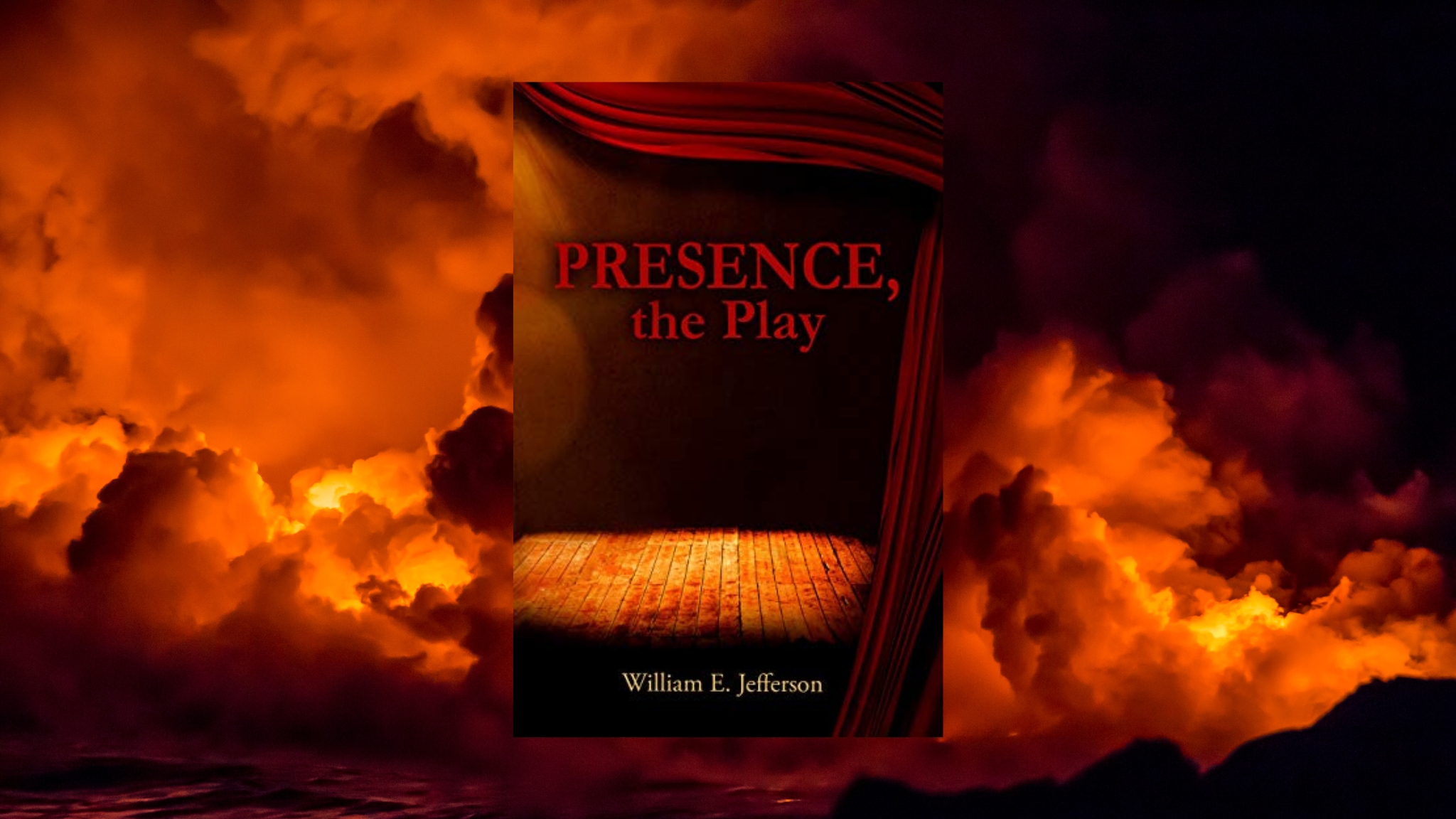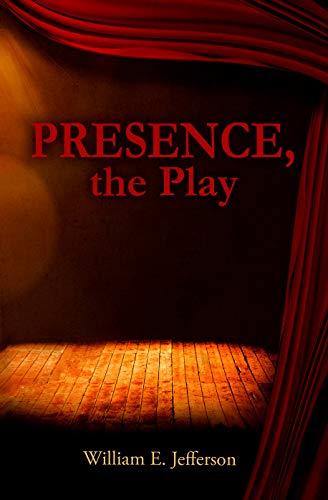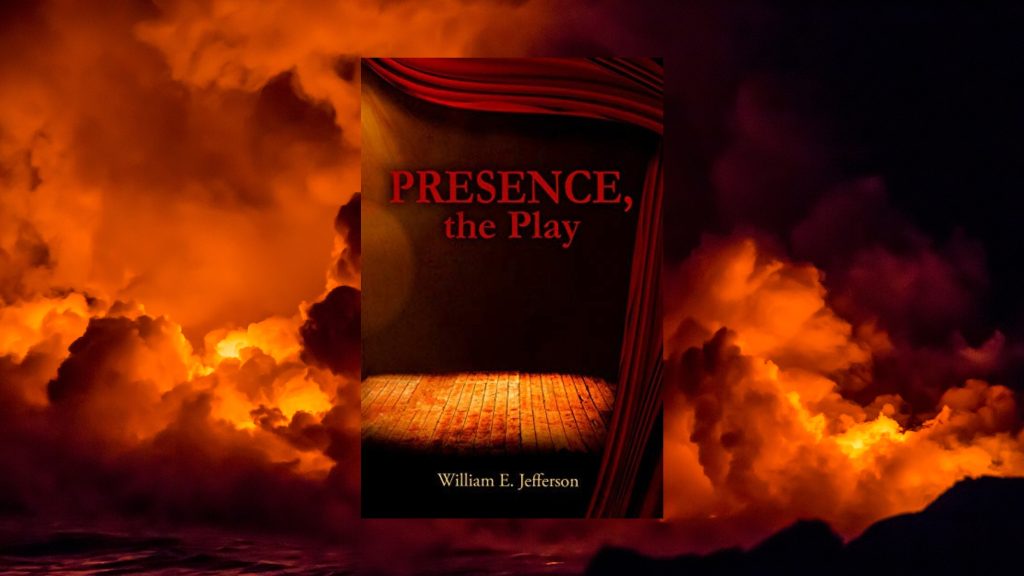
Presence, the Play by William E. Jefferson
What’s it About?
One man’s journey through his own doubt, fear and faith in the darkest of all possible places — hell itself.
During Lent, the weeks leading up to Easter, practicing Christians reflect on, among other things, the events surrounding Christ’s last days on Earth: His entry into Jerusalem, sermon at the Last Supper, arrest in the Garden of Gethsemane, trial before Pontius Pilate, crucifixion and death at the hands of Roman soldiers, burial and subsequent resurrection.
It is a story full of treachery, cruelty, despair and sorrow. One where faith and loyalty are tested. But also, one where atonement and salvation are granted for all mankind. Likewise, in William E. Jefferson’s novel, Presence, the Play, we follow one character’s Lenten journey through his own doubt, fear and faith in the darkest of all possible places — hell itself.
Unforeseen Journey to Hell
Brother Script, a member of a group of storytelling monks called the Order of Message Makers, lives on Estillyen Isle, an isolated but friendly place full of contented denizens leading simple lives. It’s opening night at the island’s Theatre Portesque for Brother Script’s latest play, Presence, but while he’s in attendance, he sadly won’t be present to witness the fruit of his labors.
This is because Script, while waiting for the opening curtain, loses his footing on the balcony, strikes his head against the railing and falls into a deep coma. While his friends are busy contacting the medics to bring him to the infirmary, Brother Script has already found himself in a strange, new place — a sort of limbo between the incarnate and discarnate world, populated by a trio of spiritual guides and a bird named Mock.
It soon becomes clear that Script’s sojourn there has a grave purpose: uncover Satan’s nefarious, imminent plans to subjugate humanity. But to do so, Script will have to go to hell and back — many times over.
Dante’s Inferno — With a Twist
It’s a dangerous mission, and not one that Script is entirely prepared for or willing to undertake. With each trip to hell, Script must pass through one of five doors that open onto a scene related to stories from the Gospels. He must observe the characters and their interactions, then find and follow a path to hell. Fortunately, he has the advice of Sage, a wizardly character who lives in this limbo world, and the steadfast companionship of Mock.
The biblical characters Simon of Cyrene and Melchizedek are also on hand to take turns as Script’s Virgil, leading him through the scorched plains and ragged cliffs of this Inferno. Jefferson’s visions of Hades are wildly imaginative, populated by tussling swarms of demons and vast numbers of sinners getting their (often ironic and thoroughly modern) comeuppances. Instead of Dante’s nine circles of hell, we explore new depths: the Seven Valleys of Sin, the Reservoirs of Bewilderment, the Crimson Cliffs, the Gargantuan Gorge. It’s a delight for fans of this genre.
Lucifer’s Nefarious Plot
Lucifer himself is impressive, a commanding and eloquent speaker who holds all who listen spellbound. We learn that he has taken notice of Script’s play, and that he rejects its premise. He instead plots to undo humanity with what he terms presence passé — a world where screens, AI, algorithms, social media, and all manner of “mediated ecology” leads humankind down the path of discarnate life and away from incarnate presence. His goal? Get God to give up on humanity.
What’s worse, Lucifer plans to start his attack with the very place where the play that rankles him so comes from — Estillyen. We learn that he plans to poison the population through a ferry shipment of Easter lilies on Easter morning. Can Script and his new friends stop Lucifer before it’s too late?
Poetry, Theology & Allegory
Presence is full of academic easter eggs for readers with background in Judeo-Christian theology, media studies and literature. Prior familiarity with these areas isn’t necessary, however, to follow and enjoy this tale. Script is a lovable, relatable and somewhat quirky character, and there’s much humor to be found as our unwitting protagonist bumbles his way through the hero’s journey. The characters’ dialogue also takes on a playful quality.
Jefferson’s writing style is often poetic, with close attention to imagery and the sound of language. He calls upon the works of Frost, Chaucer, Poe and of course, Dante, to add depth to the story. It’s an allegorical tale woven across multiple levels: Christian theology, media critique, the hero’s journey, poetic reimagining of classic works, and sheer entertainment. All wrapped in an exploration of the concept of presence and its many manifestations, both divine and mundane.
It’s the perfect read for spiritual seekers — especially around Easter.
 About William E. Jefferson:
About William E. Jefferson:
William Jefferson writes from a Civil War-era cottage in the rural Ozarks and is the owner of Storybook Barn, an all-occasion event venue. He holds an MTh in Theology and Media from the University of Edinburgh, and an MA in Communication from the Wheaton Graduate School.

Publish Date: 5/1/2021
Genre: Fiction
Author: William E. Jefferson
Page Count: 260 pages
Publisher: Port Estillyen Production
ISBN: 9781736496701

